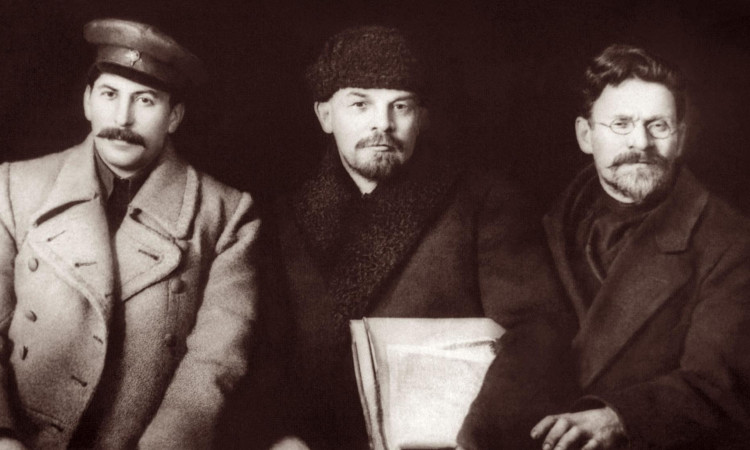The real interest of the epoch … calls for the ability to discern what is most important in the line or chain of development …
It is not enough to be a revolutionary and an adherent of socialism or a communist in general. You must be able at each particular moment to find the particular link in the chain which you must grasp with all your might in order to hold the whole chain and to prepare firmly for the transition to the next link; the order of the links, their form, the manner in which they are linked together, the way they differ from each other in the historical chain of events, are not as simple and not as meaningless as those in an ordinary chain made by a smith.
The fight against the bureaucratic distortion of the Soviet form of organisation is assured by the firmness of the connection between the soviets and the working and exploited people, and by the flexibility and elasticity of this connection. Even in the most democratic capitalist republics in the world, the poor never regard the bourgeois parliament as ‘their’ institution. But the Soviets are ‘theirs’ and not alien institutions to the mass of workers and peasants …
It is the closeness of the Soviets to the working people that creates the special forms of recall and other means of control from below which must be most zealously developed now … Nothing could be sillier than to transform the Soviets into something congealed and self-contained. The more resolutely we now have to stand for a ruthlessly firm government, for the dictatorship of individuals in definite processes of work, in definite aspects of purely executive functions, the more varied must be the forms and methods of control from below in order to counteract every shadow of a possibility of distorting the principles of Soviet government, in order repeatedly and tirelessly to weed out bureaucracy.
An extraordinarily difficult, complex and dangerous situation in international affairs; the necessity of manoeuvring and retreating; a period of waiting for new outbreaks of the revolution which is maturing in the west at a painfully slow pace; within the country a period of slow construction and ruthless ‘tightening up’, of prolonged and persistent struggle waged by stern, proletarian discipline against the menacing element of petty-bourgeois laxity and anarchy – these in brief are the distinguishing features of the special stage of the socialist revolution in which we are now living. This is the link in the historical chain of events which we must at present grasp with all our might in order to prove equal to the tasks that confront us before passing to the next link to which we are drawn by a special brightness, the brightness of the victories of the international proletarian revolution …
Of course, there are and always will be individual exceptions from group and class types. But social types remain … The petty-bourgeois revolutionary wavers and vacillates at every turn of events … The social origin of such types is the small proprietor, who has been driven to frenzy by the horrors of war, by sudden ruin, by unprecedented torments of famine and devastation, who hysterically rushes about seeking a way out, seeking salvation, places his confidence in the proletariat and supports it one moment and the next gives way to fits of despair.
We must clearly understand and firmly remember the fact that socialism cannot be built on such a social basis. The only class that can lead the working and exploited people is the class that unswervingly follows its path without losing courage and without giving way to despair even at the most difficult, arduous and dangerous stages. Hysterical impulses are of no use to us. What we need is the steady advance of the iron battalions of the proletariat.
______________________________














